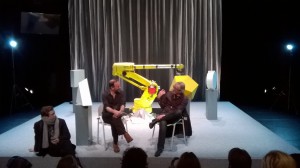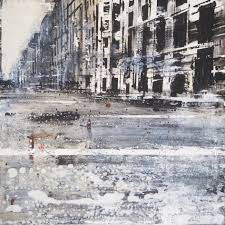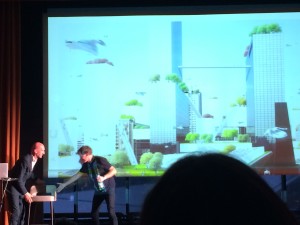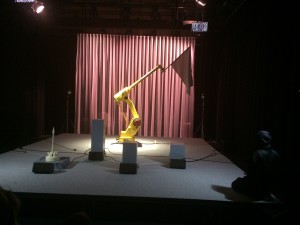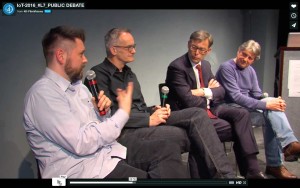On Friday, November 4th. Performance Group Urland presented the third part of the IoT-trilogy in the Theatre Rotterdam. Afterwards we enjoyed a fine and most interesting discussion with the audience that proved to be very anxious and involved in theme and background. In particular some questions concerning the role of the arts within this topic raised a discussion which really should be continued since Urland’s performance is – alas – one of the very few devoted to other, more important ethical issues than the technology only.
left to right: Jimi Zoet (Urland), Florian Hellwig (Urland, director), Martin Pot (photo: Marijke Stegen)
